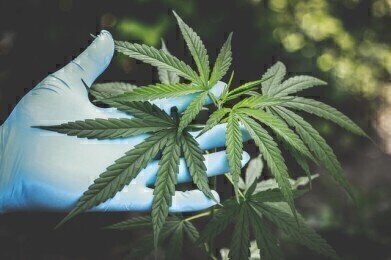Laboratory Products
How Does CBD Reduce Anxiety?
Jun 03 2021
Harnessing the therapeutic benefits of cannabis is not a new concept, with historians estimating the flowering plant has been cultivated for medicinal purposes since 500 BC. While cannabis has endured a shady reputation, over the past decade a cannabinoid called CBD has won the attention of medical researchers around the world. Short for cannabidiol, CBD is a naturally occurring compound found in the cannabis plant with known anxiolytic properties.
“CBD has shown therapeutic efficacy in a range of animal models of anxiety and stress, reducing both behavioural and psychological and physiological (e.g., heart rate) measures of stress and anxiety,” asserts the National Institute on Drug Abuse.
So how does CBD reduce anxiety? While the exact mechanisms of the cannabinoid are unknown, scientists suspect the compound interacts with receptors in the body’s endocannabinoid system to promote relaxation.
Targeting the endocannabinoid system
Responsible for regulating key bodily functions, the endocannabinoid system is a complex network that supports neuronal activity, as well as the cardiovascular and central nervous systems. It regulates a wide range of functions, including memory, appetite, sleep, fertility and mood. The last is particularly important, with studies suggesting CBD interacts with the 5-HT1a receptor, a serotonin-subtype.
Known as the “feel-good” hormone, serotonin stabilises the mood, increases feelings of happiness and promotes a sense of wellbeing. As well as causing depression, serotonin is linked to anxiety. For this reason, many anti-depressant anti-anxiety medications actively increase serotonin levels.
Activating neural receptors
As well as interacting with the 5-HT1a receptor, CBD activates CB1 receptors located in the brain’s amygdala. When these receptors are blocked anxiety can increase, making CBD a promising anxiolytic. CBD is also linked to heightened activity in the brain’s amygdala-hippocampal-cortico-striatal circuit, which is linked to emotional processing.
There are limited clinical trials exploring the anxiolytic properties of CBD, though the research that does exist is promising. In 2018 the Journal of Affective Disorders published a study suggesting that cannabis can lower anxiety levels, as well as improve stress and depression. The benefits of CBD for treating Social Anxiety Disorder (SAD) have also been explored, with a study carried out by the Primate Research Institute at Kyoto University in 2019 indicating the cannabinoid can reduce anxiety levels over a four-week period.
CBD concentration is important, with experts warning that CBD derived from cannabis strains with high THC levels can increase anxiety. To harness the anxiolytic benefits CBD must be derived from strains with low THC.
To find out more about the latest cannabis research don’t miss ‘Homogenisation and characterisation of cannabidiol (CBD) isolates.’
Digital Edition
International Labmate 49.6 - Sept 2024
September 2024
Chromatography Articles - HPLC gradient validation using non-invasive flowmeters Mass Spectrometry & Spectroscopy Articles - From R&D to QC, making NMR accessible for everyone: Putting NMR...
View all digital editions
Events
Oct 30 2024 Birmingham, UK
Oct 30 2024 Manchester, UK
Nov 11 2024 Dusseldorf, Germany
Nov 12 2024 Cologne, Germany
Nov 12 2024 Tel Aviv, Israel



















